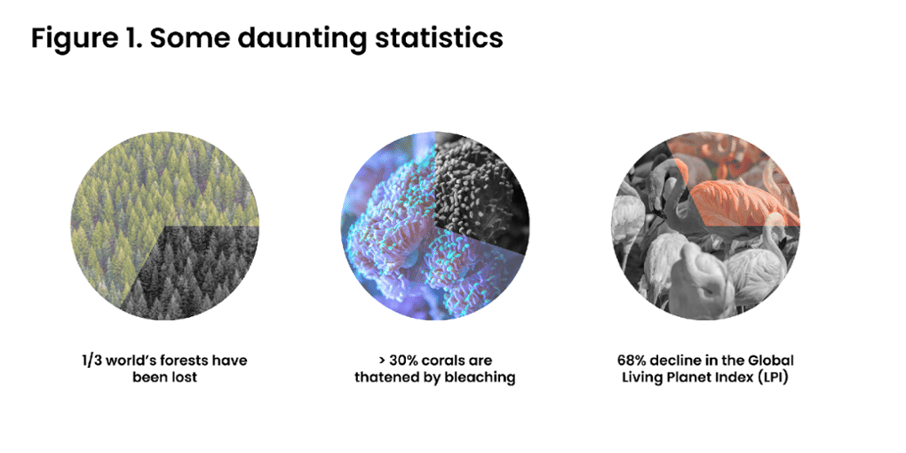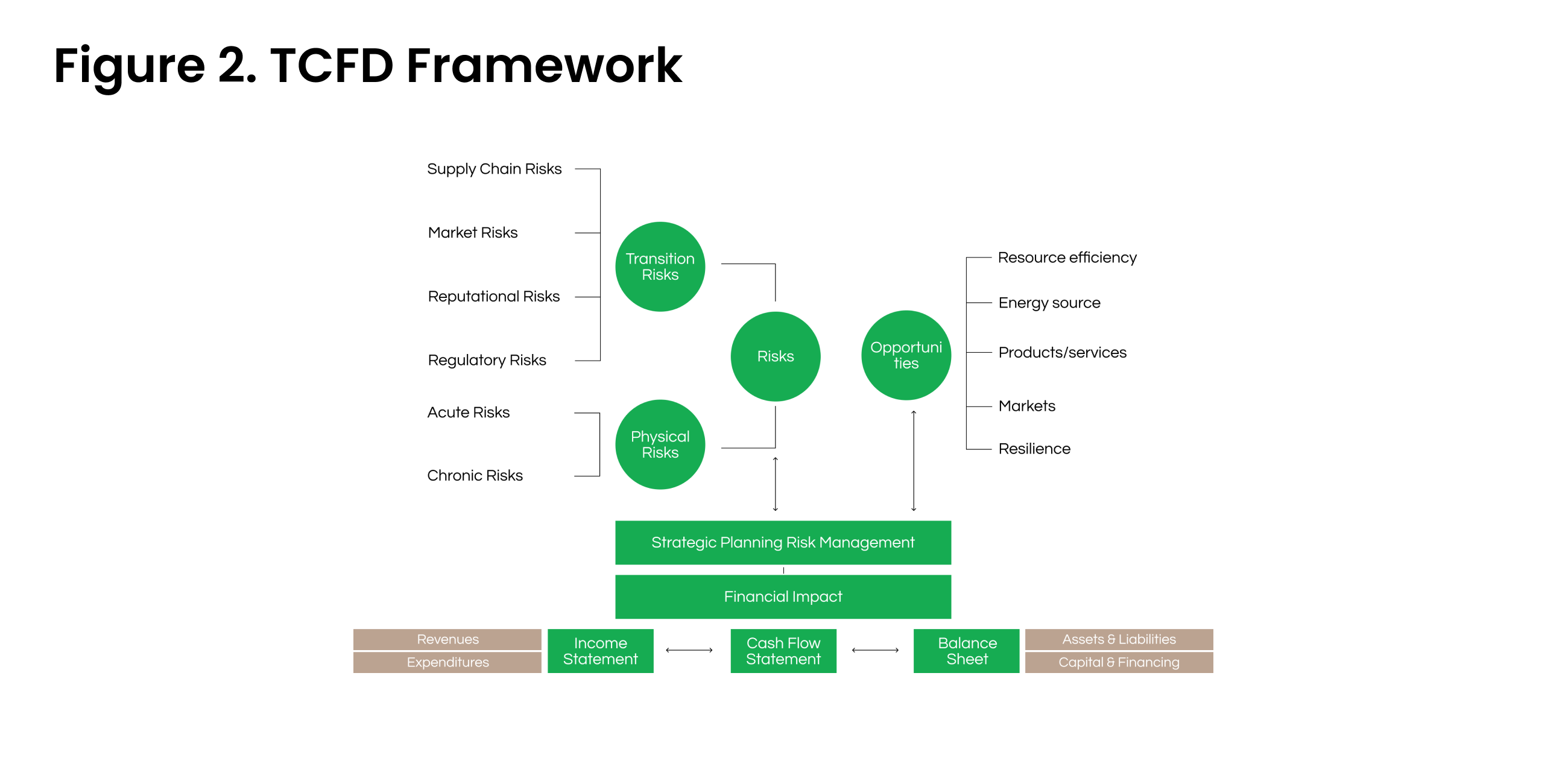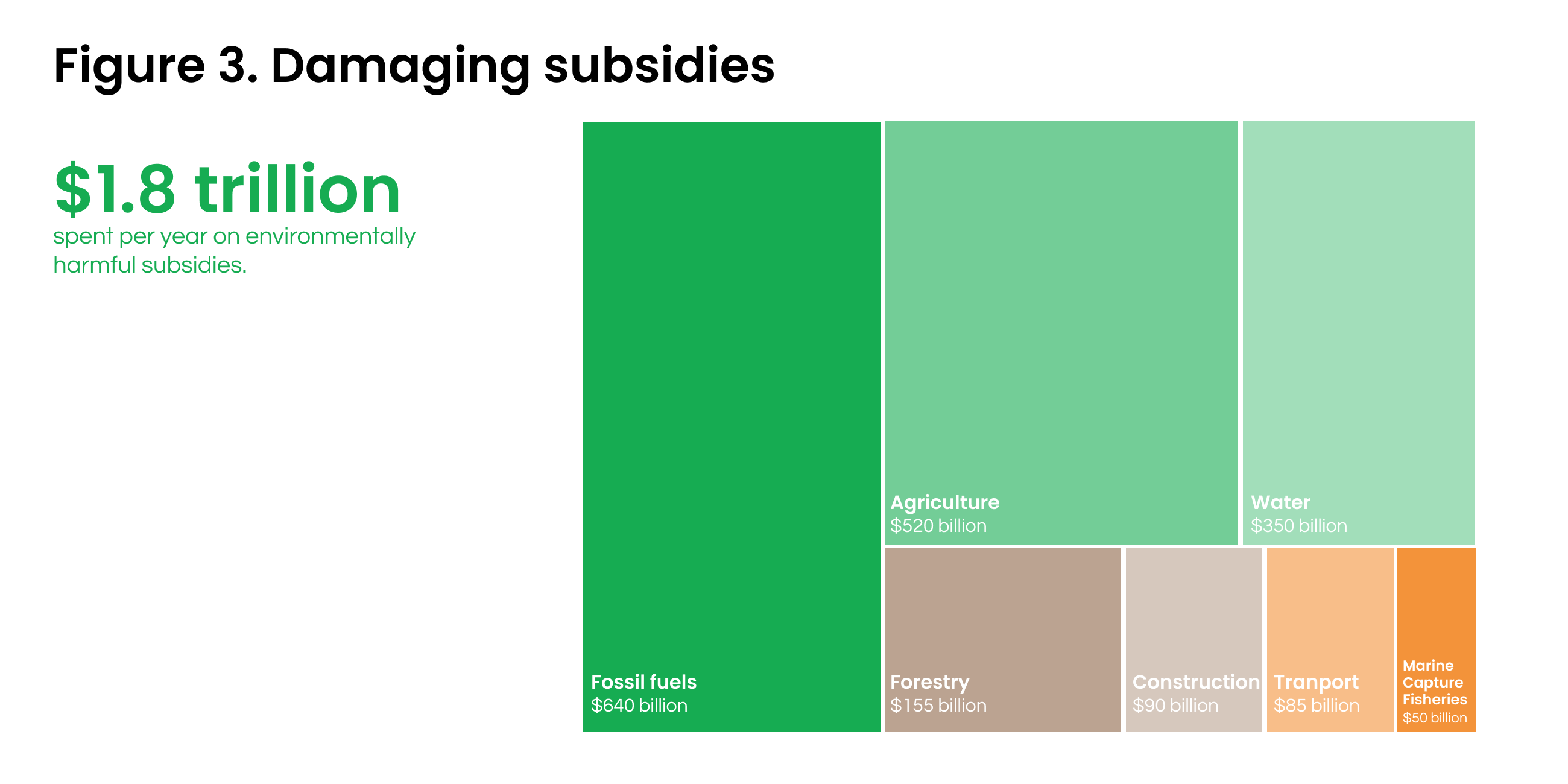Nature is Everyone's Business: Unpacking Our Greatest Asset

The race for profit maximisation has long run at the expense of nature.
- 1/3 of the world's forests have been lost to expand agricultural land (Our World in Data, n.d.);
- Over 30% of corals are threatened by bleaching due to climate change (Our World in Data, n.d.);
- The Global Living Planet Index (LPI) declined by 68% between 1970 and 2016 (WWF, n.d.)
However, organisations cannot afford this mindset anymore. Nature and Biodiversity provide tangible benefits to human life and businesses, such as resource security and protection from natural disasters.

How is your organisation dependent on Nature?
Business activities rely on Nature for their own operations (raw materials, energy, etc.), while also being heavily affected when natural disasters occur (flooding, wildfires, heatwaves, etc.).
To learn more about biodiversity, read our article “Why You Should Pay Attention to the Biodiversity Crisis”.
The Task Force on Climate-related Financial Disclosure (TCFD) developed a framework for climate-related risks, opportunities, and their financial impact. On a wider scale, the framework can be used to identify how Nature affects businesses, with both opportunities and risks.

In a context in which:
- Reactive measures to natural disasters are more expensive than a preventive approach;
- COVID-19 clearly showed how interconnected everything is: people, Nature, health, and the economy;
- Consumers are becoming increasingly aware of the impacts generated by business activities;
Not prioritising and investing in Nature only represents missed business opportunities and huge financial risks for all.
The science on nature loss is terrifying. Nature underpins everything on this planet. An ambitious post-2020 Global Biodiversity Framework that brings transformative change to our relationship with our planet is absolutely critical. Business should be at the core of calling for this change.
Alan Jope, CEO at Unilever.
Nature became everyone's business, what now?
Efforts to halt and reverse Nature loss are growing. However, voluntary business action alone is not enough to achieve these goals by 2030.
Looking at SDG14 and SDG15, we find a pretty daunting scenario.
SDG14 - Life Below WaterIn 2021, over 17 million metric tons of plastic entered the ocean. Additionally, ocean acidification is increasing due to climate change.
SDG15 - Life on LandApproximately 10 million hectares of forest are destroyed yearly and in almost 90% of cases, the agricultural sector is responsible.
Hopefully, we'll be able to stop seeing all doom and gloom after the upcoming Convention for Biological Diversity, also called COP15. The Convention will take place in Montreal, Canada, from the 5th to the 17th of December 2022. The goal is to raise the Nature agenda to the highest political level.
What is COP15?
Similarly to the Conference of the Parties COP27 for Climate Change, which is currently taking place in Egypt, COP15 aims to develop the next ambitious Global Agreement for Nature.
The Conference will gather 196 countries' representatives, with the goal of finalising the "Post-2020 Global Biodiversity Framework".
As of now, the Post-2020 Global Biodiversity Framework is structured into 21 Targets, meant to achieve the overarching 2030 Mission of:
- Significantly reducing threats to Nature and restoring Nature and Biodiversity by 2030;
- Developing a plan for finance and resource mobilisation;
- Ensuring benefits for all through fair ecosystem management.
Business implications of COP15
According to the World Economic Forum, over half the world’s total GDP (US$44 trillion) is strongly dependent on Nature. As a result, it is exposed to risks from Nature loss.
Hence, the importance of finding an Agreement at COP15 to pave the way for incorporating Nature into the business agenda.
Out of the 21 proposed Targets of the Post-2020 Global Biodiversity Framework, the following have direct implications for organisations.
Target 15
Target 15 requests to: "Encourage business and financial institutions to adopt sustainable practices resulting in benefits to biodiversity and report on their dependencies and impacts on biodiversity".
If agreed, Target 15 would introduce mandatory requirements for all businesses to:
- Assess and report how the organisation depends on Nature and its impacts on Biodiversity. This is expected to happen by enforcing the use of disclosure frameworks such as:
- (At least) Halve negative effects and increase positive impacts throughout the entire value chain.
Target 18
Target 18 deals with subsidy reforms. According to The Guardian (2022), we are spending more than $1.8 trillion per year to finance activities that threaten ecosystems and wildlife.

Therefore, parties attending COP15 will work to repurpose or eliminate harmful subsidies by 2030. Crucial for the reform process will be:
- Enhancing transparency of subsidy flows;
- Developing a harmonised monitoring process that covers both distributing governments and beneficiaries, especially when the latter are businesses;
- Favouring a just and equitable transition by supporting the most vulnerable communities.
How can your organisation contribute?
- Join the Call For Action with 1.000 other signatory organisations. This will show governments a collective voice and demonstrate business momentum on Nature;
- Register a commitment here. Join the global movement willing to contribute to Nature protection, exploring pledges actions such as the Normative Biodiversity Metric 2.0;
- Follow the Best Practices for setting your Biodiversity Strategy, observing Robeco’s recent example;
- Engage in advocacy initiatives and online Forums during COP15;
- Share key messages and content on social media about what your own organisation is doing to protect and restore Nature;
- Raise your voice and use Business For Nature’s Toolkit content to display your commitment.
Hashtags to use and follow
- #ForNature
- #natureiseveryonesbusiness
- #Post2020
- #Post2020GBF
Conclusion
We've introduced the expected business implications of COP15. With this article, we want to encourage businesses to protect and restore Nature as well as Biodiversity. Additionally, we hope that by bringing attention to the upcoming COP15, policymakers will prioritise Biodiversity protection next to Climate action.
This would produce policies and instruments allowing more organisations to incorporate Biodiversity into their sustainability strategies and mitigate business risks.
On this note, the United Nations estimates that every $1 spent on ecosystem restoration will result in between $3-$75 of economic value.
By engaging with the Global Goals for Nature, you will contribute not only to the protection and restoration of our planet. You will also be able to seize strategic opportunities offered by ecosystem services.